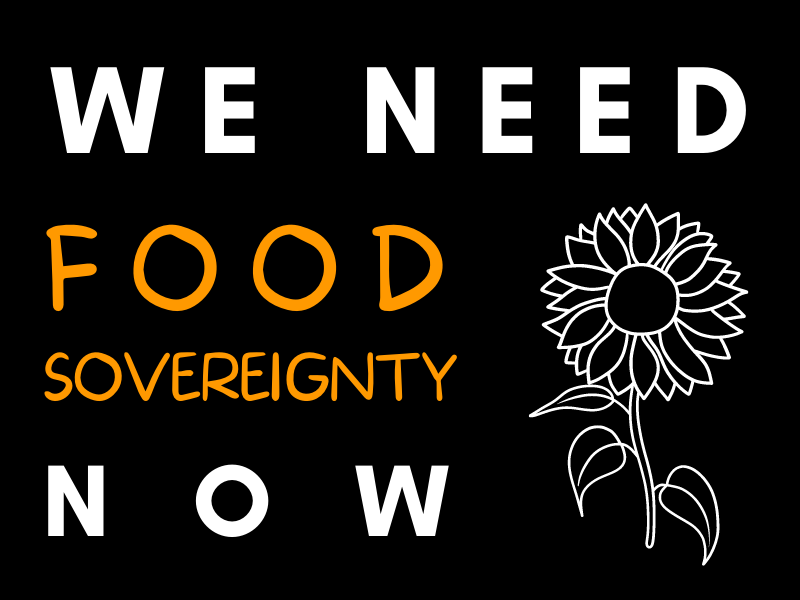Today is International Day of Peasants’ and Farmers’ Struggle. Today, and every day, we honour small-scale farmers, farm workers, pastoralists, landless people, peasant fishers and indigenous people all around the world, and acknowledge their dedication to growing most of the food we eat, despite the growing persecution and violence they suffer from.
Every year on 17 April, we remember the Eldorado do Carajás massacre that happened on that same date in 1996, which saw the bloody repression of Brazilian farmers organised in the Movement of Landless Rural Workers (MST), farmers who were struggling for their right to land. 19 of them were murdered by the state military police, in cohorts with agribusiness interests.
Today, 27 years later, land grabbing, agribusiness expansion, oppression and repression of peasants and local communities are unfortunately still going strong around the world.
Big Agri swallowing up small farms
In the EU, small-scale farms are disappearing at an alarming rate. In 2020, two-thirds of the 9.1 million agricultural holdings were small-scale peasant farms with less than 5 hectares. But despite their importance for keeping rural areas alive, the EU lost 37% of its farms between 2005 and 2020. It means 5.3 million farms less. The vast majority of which (about 87 %) are small farms of a size under 5 hectares.
Those farms struggle every day for their survival, squeezed out by big multinational corporations who took control of the agricultural market and captured the food chain, using different failing technologies and approaches (synthetic pesticides, genetically-modified crops, factory farming) to expand their power.
The latest false solution and example of this unjust agricultural system that endangers peasants to safeguard agribusiness’ profits? Water grabbing and the development of mega-basins, like the one in Sainte-Soline in France many heard of. Such infrastructures can only maintain an industrial model highly dependent on mass irrigation and benefit a very small minority of farmers, at the expense of all others. It is a false solution that is not adapted to the long term agricultural problems we face and a typical example of “maladaptation” to climate change.
In Sainte-Soline, peasants organisations and environmental activists have been resisting and mobilising for months to denounce one of these mega-basin projects and to call for a fair distribution of water. On March 25, during one of their latest rallies, nearly 200 people were injured, two are still in life-threatening conditions, several were maimed and seriously injured. 4000 GM2 tear gas grenades were fired by the police in the two hours of confrontations.
Free trade agreements are making it worse
On the other side of the world, in Brazil, peasants and local communities are also still fighting for their rights against big corporations’ privileges and dangerous practices. According to new research from Friends of the Earth Europe and Repórter Brasil, “in 2022, there was a 33% increase in violence against rural workers over the same period of the previous year. The number of land conflicts regarding land ownership and use have increased constantly since 2016 […]. The regions where most conflicts occur match the areas suffering from agribusiness activities, generally led by loggers, land grabbers and gunmen.”
Graciela Stornini de Almeida from the Landless Movement (Movimento Sem Terra) says: “Poison rained down on us for years. Our territories are being constantly threatened by the growth of agribusiness and by the indiscriminate increase in the use of pesticides.”
Yet, the free trade agreement that is currently being negotiated between the EU and the Mercosur region (Argentina, Brazil, Paraguay, Uruguay) will exacerbate these threats and will be a disaster for sustainable farming. It will increase intensive agriculture by growing monocultures, multiplying factory farms and chiefly benefiting European agrochemical companies – and thus further drive climate change, deforestation and human rights violations.
Today, and every day, we stand with peasants communities across the globe and call on leaders to protect and defend their rights, as defined by the UN Declaration on Rights of Peasants and Other People Working in Rural Areas (UNDROP).
The current food and farming system is broken. Public policies should support a just transition to small-scale sustainable farming, where local communities, farmers and farmworkers are respected and given the power and resources to produce and distribute food sustainably. This is the future we need to feed our societies, prevent ecological collapse, and build vibrant rural economies. Food sovereignty is the future.







